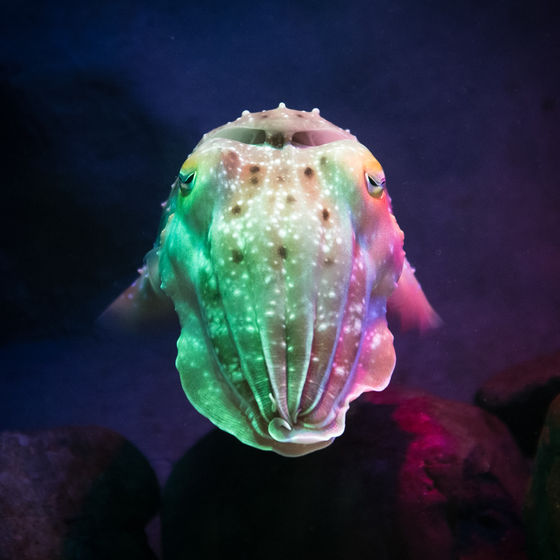Squid turned out to be `` save lunch for favorite food to go to dinner ''

by
If your dinner menu is a favorite of the day, or if you're just having fun eating out, many people will think, 'Let's eat for eight minutes.' Experiments have shown that squid, a sea mollusk, can save lunch to eat its favorite food as well.
CUTTLEFISH SHOW FLEXIBLE AND FUTURE-DEPENDENT FORAGING COGNITION
https://www.repository.cam.ac.uk/handle/1810/301004
Cuttlefish Can Refrain From Eating if They Know a Better Meal Is on The Way
https://www.sciencealert.com/cuttlefish-can-refrain-from-eating-if-they-know-a-better-meal-is-on-the-way
'Clever' cuttlefish will resist filling up on crab for lunch if they know there's shrimp for dinner | Daily Mail Online
https://www.dailymail.co.uk/sciencetech/article-7965751/Clever-cuttlefish-resist-filling-crab-lunch-know-theres-shrimp-dinner.html
Predicting the future and putting up with it is actually an action that requires self-control with advanced intelligence. For example, in a marshmallow experiment conducted at Stanford University in 1970, a 4-year-old child was told that `` I will give one marshmallow, but if I put up with eating for 15 minutes, I will give another marshmallow later. '' Only about a third of the children could actually endure.
Also, in the “ Crow Marshmallow Experiment ” announced in January 2020, it was confirmed that wild crows could exhibit almost the same self-control as children between the ages of 3 and 5, which surprised the experts.
Meanwhile, a team of researchers from Cambridge University's School of Psychology, Polin Biard, and others, have found through experiments that squid can predict the future and optimize foraging behavior. The research team first conducted experiments for 5 days to give crabs and shrimp at equal intervals to confirm the taste of European squid widely distributed in Europe , and observed which squid bites. did. As a result, it turned out that all 29 squids used in the experiment were 'favorite shrimp'.

by Peter Hellberg
The research team then split the squid into two groups and started the experiment. The first group was given 'crab during the day and shrimp at night'. The second group was also given a crab during the day, but it was randomly determined whether the night food was shrimp. Looking at the food menu for 16 days, the squid of the group that can definitely get shrimp said that the amount of crabs eaten during the day was clearly small. On the other hand, the second group, who was uncertain whether they could get shrimp, did not see any reduction in crab eating.
To eliminate the possibility of the first group of squids being particularly clever, the research team performed the same experiment by replacing the squid of both groups, but as expected, the squid always gets shrimp at night immediately He noticed that he reduced the amount of crabs he eats during the day.
Mr. Biard said of the result: 'In just a few days, the squid was able to detect whether shrimp would come out in the evening. This is a very complex behavior that would require a sophisticated brain. You can't do that. '
'The squid's flexible feeding strategy has shown that squid can quickly adapt to changes in the environment based on experience. This finding is complex,' said Nicola Clayton, co-author of the paper. It provides valuable insight into the evolutionary origins of cognitive ability. '
Related Posts:







